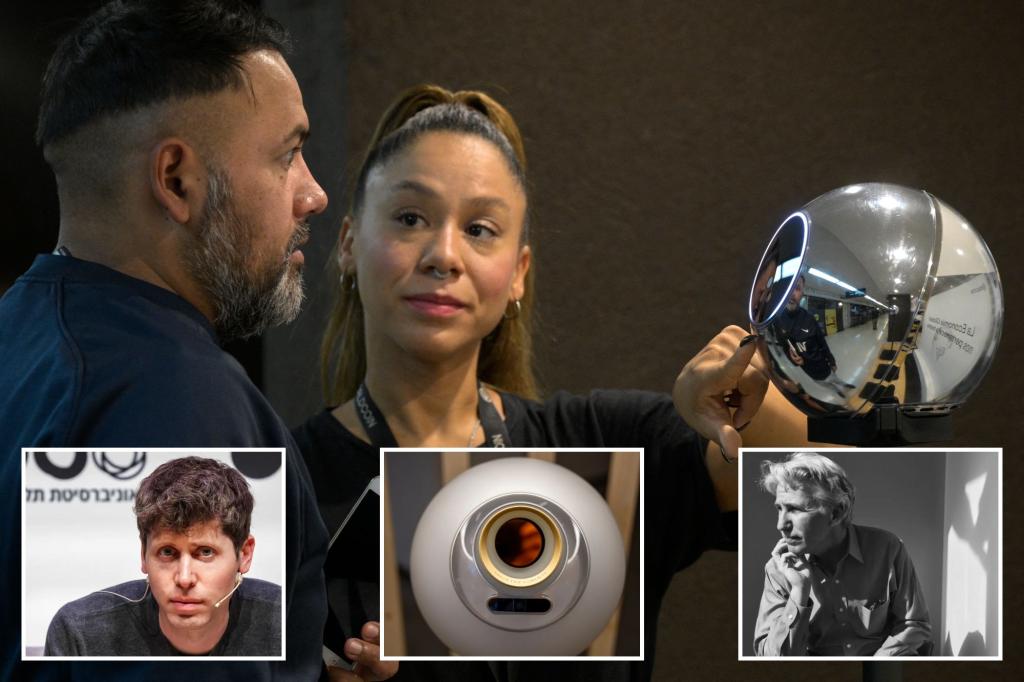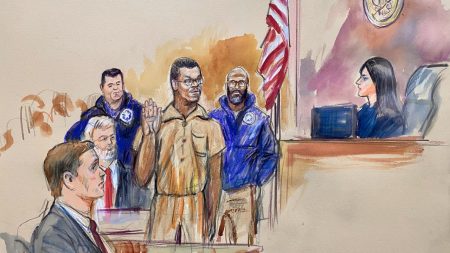The Human Touch in a Digital Age: Sam Altman’s Vision for Authentic Online Interaction
In an era where digital deception has become increasingly sophisticated, Sam Altman’s World project offers a bold solution to distinguish humans from bots online. The initiative, which has already gathered 15 million participants worldwide, aims to provide each person with a unique digital identity through a simple iris scan. This “Verified Human” status could revolutionize our online interactions, from social media conversations to gaming and dating apps. With an ambitious target of reaching 100 million users within the next year, the World project represents a significant effort to restore authenticity to digital spaces increasingly populated by AI-generated content and automated interactions.
The verification process centers around an encounter with the “Orb,” a sleek, spherical device that captures a high-definition image of a person’s iris in just five seconds. According to a spokesperson from Tools for Humanity, the company providing technology to World, the Orb doesn’t just take a picture—it confirms you’re a living human by detecting heat, movement, and other biological indicators. This sophisticated scan generates a unique 12,800-digit binary code based on the distinctive characteristics of your iris, creating a digital signature that can verify your humanity without revealing your specific identity. The technology transforms this biometric data into what they call a “zero-knowledge proof,” confirming you’re a unique human without storing or sharing personal details about who you actually are.
To encourage participation, World offers incentives through its associated cryptocurrency, Worldcoin. Americans who consent to the scan receive the equivalent of $42 in Worldcoin tokens, distributed gradually over a year. However, this approach has prompted skepticism from privacy advocates and technology experts alike. Gary Rivlin, a Pulitzer Prize-winning journalist and author of “AI Valley,” expressed hesitation about participating without a compelling reason. Ben Winters, director of AI and privacy at the Consumer Federation of America, voiced concerns about the continuing erosion of privacy. These reactions highlight the tension between technological innovation and public trust, particularly at a time when confidence in tech companies has been eroded by numerous data breaches and privacy scandals over the years.
The World project’s origins predate the AI boom that followed OpenAI’s public launch in 2022. According to the company spokesperson, Altman and his project partner Alex Blania recognized back in 2019 that distinguishing between human and non-human online interactions would become increasingly challenging. This foresight led them to develop a solution that could authenticate human identity in digital spaces. Beyond just verification, the project addresses another significant concern: the economic disruption that advanced AI may cause. Altman envisions a future where artificial intelligence displaces human workers on a massive scale, potentially necessitating a universal basic income (UBI) system. World’s verification technology could play a crucial role in such a system by preventing fraud and ensuring that benefits reach their intended recipients only once.
The connection between identity verification and cryptocurrency reflects Altman’s broader vision for wealth redistribution in an AI-dominated economy. In a 2023 white paper, the organization emphasized the importance of “fairly distributing access and some of the created value through Universal Basic Income” as a counterbalance to the concentration of economic power that AI advancements might accelerate. Altman has already demonstrated his commitment to this concept by funding a UBI experiment that provided $1,000 monthly to low-income residents in Texas and Illinois. The World project extends this effort by creating an infrastructure that could support large-scale distribution systems while preventing exploitation through multiple or fraudulent claims. This approach represents a technological solution to the potential economic inequalities that might arise as AI continues to transform the job market.
Despite noble intentions, the business model behind World suggests potential profit motivations alongside its humanitarian goals. Tom Lee, Chairman of BitMine, which invested $20 million in the project’s cryptocurrency treasury, indicates that verification transactions could eventually generate revenue through small processing fees paid in World tokens. The project has already secured partnerships with prominent platforms like Tinder and gaming company Razer, with discussions underway with Reddit as well. These applications demonstrate the practical value of human verification in contexts ranging from online dating to competitive gaming, where bot interference has become increasingly problematic. Adam Fisher, author of “Valley of Genius,” characterizes Altman’s vision as aligned with the techno-utopian ideals of early internet pioneers—driven not primarily by profit but by a genuine desire to “do something big that will help people.” As artificial intelligence continues to blur the line between human and machine interaction, the World project represents an ambitious attempt to preserve human authenticity in digital spaces while potentially laying groundwork for economic systems that could distribute AI-generated wealth more equitably.







